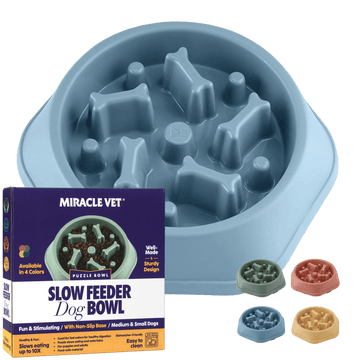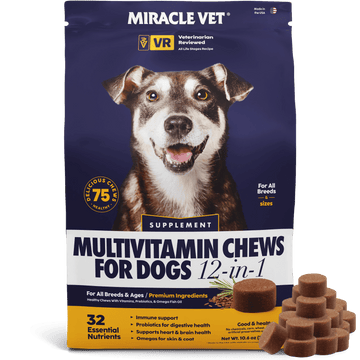When it comes to weight loss in dogs, there are many possible reasons, and figuring it out can sometimes be tricky.
This guide is here to help you identify causes and provide solutions to help your dog maintain a healthy weight. However, we always recommend consulting with a qualified veterinarian before making any changes. In emergencies, such as if your dog eats something toxic, contact your vet or a poison control center immediately.
Illness
If your dog is losing weight, the first step should always be a visit to your vet. There are several underlying conditions that could cause weight loss, even if your dog is eating normally. One of the most common culprits is worms or parasites. For instance, a dog with a tapeworm can eat normally and still lose weight. Ensuring your dog is healthy is essential before attempting to help them gain weight.
Other illnesses like parvo or Lyme disease can also lead to weight loss, sometimes alongside a loss of appetite. Once your dog’s health is restored, feeding them high-quality dog food will provide better results than simply increasing the quantity of low-quality food. Better nutrition benefits your dog’s skin, coat, bones, joints, and overall energy levels.
Trauma
Weight loss can also result from trauma—physical, mental, or both. If your dog is recovering from an accident or a fall, they may lose weight due to reduced activity and appetite. In these cases, a high-calorie supplement can help maintain their weight during recovery.
Mental trauma, often caused by neglect or abuse, can be harder to identify. Symptoms like fear, aggression, or anorexia might point to emotional issues. Show your dog love and affection, establish routines, and create a safe environment to help them heal. A veterinarian or behavioral specialist can also offer valuable insights.
New home move
Moving to a new home can be stressful for dogs, even if the change improves their living conditions. Stress and anxiety from a new environment can temporarily suppress their appetite, leading to weight loss. Be patient and allow your dog to adjust gradually.
Picky eaters
Sometimes, weight loss occurs because your dog simply doesn’t like their food. If your dog isn’t eating enough, try offering different options. Many brands provide free samples or money-back guarantees, which can help you find something your dog loves without breaking the bank. Gradually transition them to new food to avoid digestive upset.
Not feeding enough
Every dog is unique. Even two dogs of the same breed and weight can have different caloric needs. Adjust feeding amounts based on your dog’s activity level and ensure their weight remains healthy and consistent.
Dehydration
Dehydration can quickly lead to weight loss and other health issues. Always provide your dog with access to fresh water, especially during exercise or in hot weather. Signs of dehydration include excessive panting and lethargy. If you suspect dehydration, consult your vet immediately.
Diabetes
Diabetes is a condition that requires veterinary diagnosis and treatment. Maintaining a consistent diet and exercise routine is crucial for managing this condition.
Medications
Some medications may cause weight loss as a side effect. Always discuss any changes in your dog’s weight with your vet, especially if they are on medication.
Cancer
Cancer can lead to a condition known as cancer cachexia, where dogs lose weight due to the disease and its treatments. Work closely with your vet to manage your dog’s weight and overall health.
Dental issues
Dental problems, like gingivitis or broken teeth, can make eating painful for dogs. Once treated, their appetite and weight should improve quickly. Bad breath can be a clue there might be an underlying problem. Regular dental check-ups are key to preventing these issues.
Parasites
Parasites, like tapeworms, can cause weight loss even if your dog is eating well. Symptoms include scooting or visible worms in their stool. A vet can diagnose and treat parasites effectively, often recommending preventative measures like monthly chews.
Older dogs and digestion
Digestive issues are more common in older dogs and can stem from allergies, viruses, or conditions like inflammatory bowel disease. Probiotics and omega fatty acids can support digestion and help maintain a healthy weight. High-quality supplements that include fish oil can also reduce inflammation and improve gut health.
Sudden weight loss
Sudden or rapid weight loss should always be addressed by a vet. Common causes include parasites, dental problems, or stress from rehoming. Once the underlying issue is resolved, proper nutrition and supplementation can help your dog regain weight and maintain their health.











